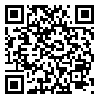BibTeX | RIS | EndNote | Medlars | ProCite | Reference Manager | RefWorks
Send citation to:
URL: http://jcp.khu.ac.ir/article-1-2455-en.html
The purpose of this study was to examine the effect of different recall distances on explicit motor memory consolidation. Thirty Six students were randomly divided into three groups with distance of immediate, 6, and 24 hours in recall test. This research consisted of two phases of acquisition and recall. In acquisition period, all groups practiced the task for 15 blocks of 80 trials (five epochs of 400 trails). Then in recall phase, all experimental groups were practiced five blocks of 80 trials (one epoch of 400 trails). Also, all groups practiced the alternating serial reaction time task in each epoch. Data were analyzed with using the ANOVA repeated measure. Results showed that in acquisition phase the group main effect and interaction effect between group and epoch were not significant. But epoch main effect was significant and practice lead to inducing sequence reaction time in third epoch related to other epochs. In recall phase, the epoch main effect and interactive effect between group and epoch were significant, but group main effect was not significant. Results in Duncan Post Hoc showed that only group with 24h off line periods, in recall test, had the better performance than acquisition phase. Practice in group with 24h offline lead to decrease the reaction time than other group .Our Results indicated that 24h offline period for recall test is better time for optimal performance.
Accepted: 2016/05/31 | Published: 2016/05/31
| Rights and permissions | |
 |
This work is licensed under a Creative Commons Attribution-NonCommercial 4.0 International License. |






